Whether the acne is mild, moderate or extreme, the different types can have a serious effect on confidence and moods at any age. The more severe the acne too, the greater the chance that you may be left with scarring post-treatment. Acne scars can range from pit- or crater-like to bumpy. To avoid scarring as much as possible, it is vital to treat acne well before it reaches this stage.
The different types of acne present themselves in two categories:
Noninflammatory Acne
The main reason many people suffer from acne is due to the pores on the surface of our skin becoming clogged with oil, dirt, sweat, dead skin cells, and other bacteria. These all lead to a build-up and develop as blackheads (open comedones) and whiteheads (closed comedones). As the name suggests, these don’t lead to swelling,and they respond relatively well to over-the-counter treatments and improved personal hygiene.
Inflammatory Acne
As the build-up in your clogged pores expands further, blackheads and whiteheads multiply into pimples, papules, pustules, and the more severe inflammatory acne; nodules and cysts or cystic acne.
– Pimples are small tender red bumps
– Papules are solid raised pimples or form a swollen rash
– Pustules present as bumps containing pus
– Nodules are hard, often painful, acne lesions beneath the skin
– Cysts are deep pimples or boils containing pus that can be very sore

Genes do play a crucial role in the chances that you will get acne as an adult. Relatives may find they share the same family history when it comes to adult acne. While there is no single ‘cure’ for acne at the moment, more treatments are being developed all the time, and each person will react differently. What didn’t work for one member of your family, may work for you. While your genes may be related, your body and skin will behave differently. Don’t ignore a treatment option just because it hasn’t worked for someone you’re close to.
For non-inflammatory acne, good hygiene and exfoliation form the basis of good acne treatment. For more advanced forms, seek over the counter help too. However, if you’re suffering from acne that is disfiguring, scarring or long-standing,please seek the help of a specialist such as one of our trained skin technicians here at CoLaz or a trained medical professional. Here are CoLaz’s top 5 solutions for treating different types of acne:

While there’s no scientific evidence that poor hygiene, diet or sexual activity play a role in genetic acne, the symptoms can be exacerbated if you don’t take care of yourself. Showering often if you work in an environment which leaves you sweaty or oily will help mitigate the risk of making your acne worse.
Drinking plenty of water, maintaining good hygiene, doing regular exercise, and treating yourself to a healthy, nutritional diet form the foundations of a wholesome lifestyle.
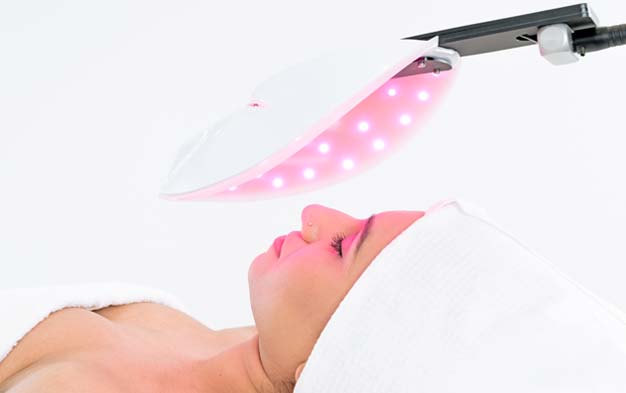
In the UK, research shows that we spend £369 million every month on over the counter treatments for solving skin concerns, including acne. Look for over the counter acne treatments that contain benzoyl peroxide, salicylic acid,or the more natural glycolic acid and tea-tree oil.
Each of these treatments target slightly different actions, from improving your daily turnover of the top layers of dead skin to cleansing your epidermis (the top layer of skin) from bad bacteria and unclogging pores.
Salicylic acid works best on noninflammatory acne. It helps to naturally exfoliate your skin, removing the bacteria and dead skin cells that can build-up to blackheads and whiteheads. Many high-street cleansers, toners, and moisturizers will contain it.
Topical retinoids which contain benzoyl peroxide in the forms of gels and creams tend to be the best way to remedy whiteheads. Some mild ones can be bought over the counter, but for a stronger percentage strength, you may need to a doctor’s prescription. Apply these thinly to avoid skin irritation.
Glycolic acid and tea-tree oil are two naturally forming remedies that can be found in many over the counter acne treatments. Glycolic acid is derived from sugar came and works best post-acne treatment to get rid of the dark spots that can be leftover. Tea-tree oil, or Melaleuca, is a natural antiseptic and anti-inflammatory which works well on mild acne infections.
Bear in mind though that everyone’s skin responds in a slightly different way to each of these solutions.
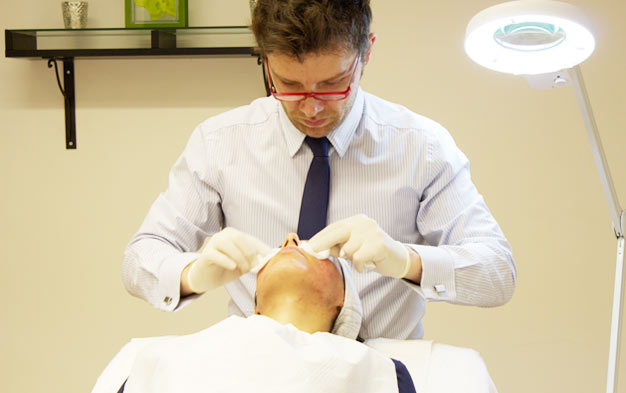
While considered controversial due to the side effects linked to depression and suicide, the oral Isotretinoin drug Roaccutane (its brand name) is very powerful for treating severe inflammatory forms of acne.A retinoid from the vitamin A family, Roaccutane can be taken as a tablet or used in its cream form.
It can take up to 20 weeks, but 95% of people who have used the drug find it clears their acne, which can remain gone for years after.
Before getting too excited, Isotretinoin can cause dry and cracked skin, split lips, a dry throat, as well as aching muscles, and the aforementioned depression. However, severe acne can lead to depression as well so if you’re at this stage, then mood changes may be the least problem on your mind.
So, as long as a specialist or doctor carefully manages your treatment it is nothing to be too anxious about.
Roaccutane is by no means an easy treatment.While taking the drug, you will also need blood tests to monitor your cholesterol levels and liver – because it’s a teratogenic – and it can also cause abnormalities in babies, so it is usually prescribed with contraception too.
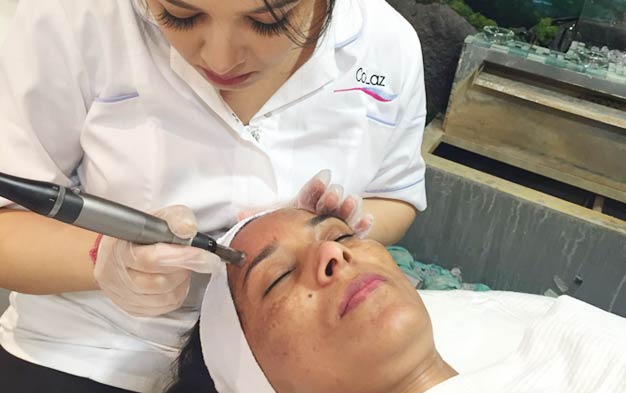
For more on CoLaz specialised acne treatments visit our page here. We have a number of expert treatments that can address many different types of acne from Intense Pulsed Light Therapy (IPL) and Light Emitting Diode Therapy (LED) to microdermabrasion, chemical peels, and micro-needling treatments.
CoLaz also has performed extensive research into acne to produce a range of CoLaz own skin care products. As well as being unique to the UK, CoLaz product range is designed to be free of artificial colours or fragrances, excess fillers, and are strong in the fight against different types of acne.
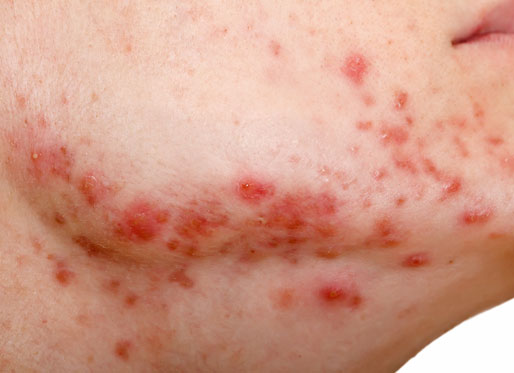
Just as there are different types of acne, there are also different types of acne scars:
Ice Pick Scars: Deeper than these are wide, ice pick scars often have jagged edges. They often look like a large, scooped-out pore.
Boxcar Scars: These are broad, rectangular depressions that have steep, defined edges.
Rolling Scars: More broad depressions, but these have rounded, sloping edges, hence the name.
When it comes to acne scar treatment, such blemishes will fade over time and can take between 3-6 months to diminish. Here are a few treatments you can use to help quicken the process.
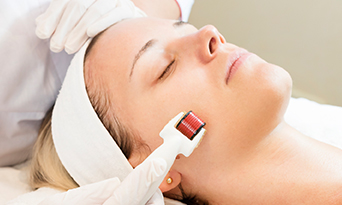
Micro-needling
It has been proven to significantly reduce the effects of acne scars by puncturing the skin with incredibly fine needles to encourage the skin to heal with new layers of collagen and elastin fibres.
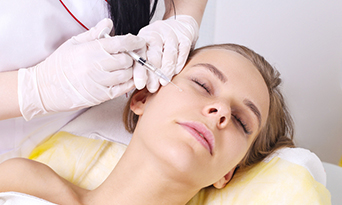
Dermal Fillers
They are injected beneath the skin to restore volume and firmness to your skin and improve the look of indented acne scars. However, these are not permanent; results can last between six months and two years.
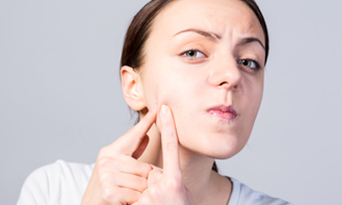
Chemical Peels
Dark patches, acne blemishes, and acne scars can all be addressed with a specialised facial chemical peel. By removing the dead skin cells which clog your pores, chemicals peels encourage new cells & promotes collagen production leaving your skin looking firmer & smoother.